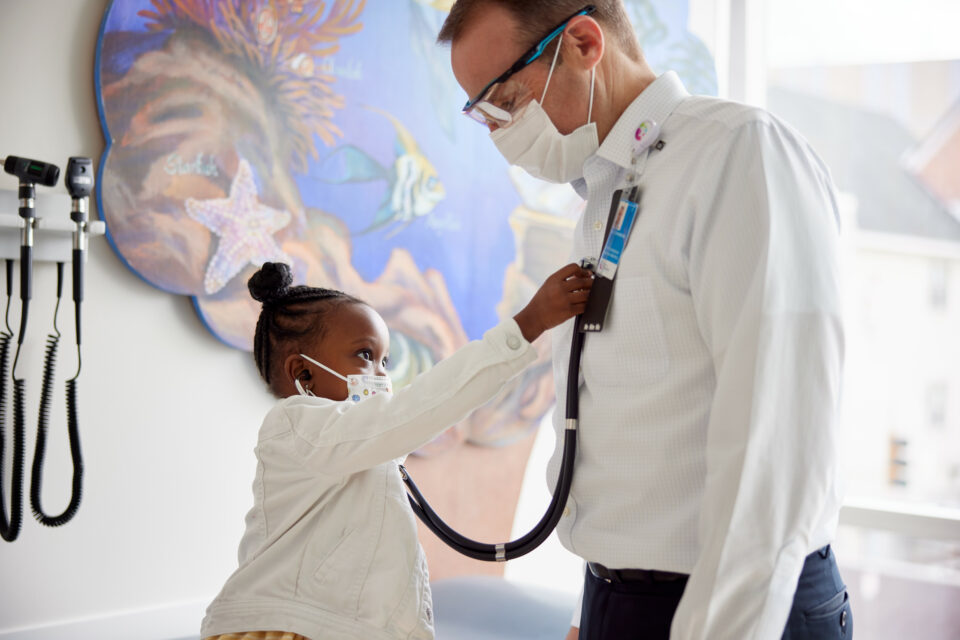The Heart and Mind Wellbeing Center, focused on helping patients and families navigate the mental health stresses that come with a congenital heart disease diagnosis, is in full force. We had the pleasure of speaking to one of the masterminds behind it, Dr. Nadine Kasparian, professor of pediatrics and director of the new Cincinnati Children’s Hospital Medical Center’s Heart and Mind Wellbeing Center, to learn all about it.
Q: Tell me about where the new Heart and Mind Wellbeing Center derived from.
A: I have been working with children and adults with congenital heart disease for 15 years now, originally in my home country, Sydney, Australia. We know through years of research that emotional and mental health challenges are common when facing serious medical illness. Yet, despite this evidence showing how common mental health challenges like anxiety and depression can be, we also know there is a large gap in access to psychological support and mental health care at the right time and place with experts in providing this kind of care. Last year, I had the privilege of working with the American Heart Association and a multidisciplinary group of experts to write the first scientific statement on psychological care for people with congenital heart disease. This statement aims to inspire new standards for the integration of mental health care within congenital heart centers so that cardiac care and mental health care go hand-in-hand and is accessible to all people with congenital heart disease and their families. Our new center at Cincinnati Children’s aims to do just this.
Q: Can you talk about the people/families this center will be geared toward and how it will help?
A: One of the things that really sets us apart is that our care is tailored specifically for those who are affected by congenital heart disease and is offered to people of all ages, beginning as early as during pregnancy after prenatal diagnosis of congenital heart disease, through infancy, childhood and the teen years, as well as for adults with congenital heart disease, providing care as early as possible and throughout all stages of heart care.
Q: What sets your program apart from others?
A: We provide care for the whole family – patients with congenital heart disease and also parents and caregivers, siblings, and partners. So really putting patients and families at the center of mental health care. Our team includes psychologists, a child life specialist and social worker, and we offer both in-person and where possible, telehealth care.
Q: CHD is a problem amongst adults and children – can you explain what CHD is for those who are unfamiliar, how it develops and how the center will help with the physical and mental aspect of it?
A: CHD stands for congenital heart disease which is the most common birth defect. It affects about 40,000 newborns in the United States every year, and there are currently about 2.4 million people living with congenital heart disease in the U.S. CHD occurs when babies are born with structural abnormalities of the heart or blood vessels involving the heart. Some of these babies or young children will need life-saving surgery or other procedures and intensive care. Time spent in the hospital can vary from a week to months. Many need specialty heart care throughout their lives. Living with a chronic illness very understandably can give rise to emotional challenges and we know that comprehensive cardiac care includes mental health care. This can help in many ways, including providing support when people feel anxious about coming to the hospital for cardiology appointments or having medical tests or procedures.
Q: The Heart and Mind Wellbeing Center will be conducting groundbreaking research into parent’s mental health – can you elaborate on what this research will entail?
A: We would love to talk more about a brand-new study we are about to launch. [stay tuned!] In the meantime, we are currently working on 30 studies focused on heart disease and mental health. This includes research with patients and families to better understand the factors that contribute to psychological wellbeing as well as difficulties like anxiety, depression and posttraumatic stress. And we use this data to guide the development of new interventions and treatments.
Q: When is the center expected to open and what can families expect as far as making appointments, online options, scheduling appointments, etc.?
A: We are thrilled to have opened on January 24th and are ready to welcome patients and families to our center. We are located at Cincinnati Children’s Hospital Medical Center Main Campus on Burnett Avenue, embedded within the Heart Institute.
We know that the first step to reaching out for support can be really difficult and people might not know what kind of support will be most helpful for them, and that is definitely something that we can help with. So reaching out and exploring what might be helpful with us is part of what we do and we will help patients and families to find the right support for them. We want families affected by congenital heart disease to know they are not alone. Mental health challenges are common when facing medical illness, and we are here to offer support, guidance and treatments when needed.
To learn more, find more information, make an appointment and more, visit cincinnatichildrens.org/heart-mind.





